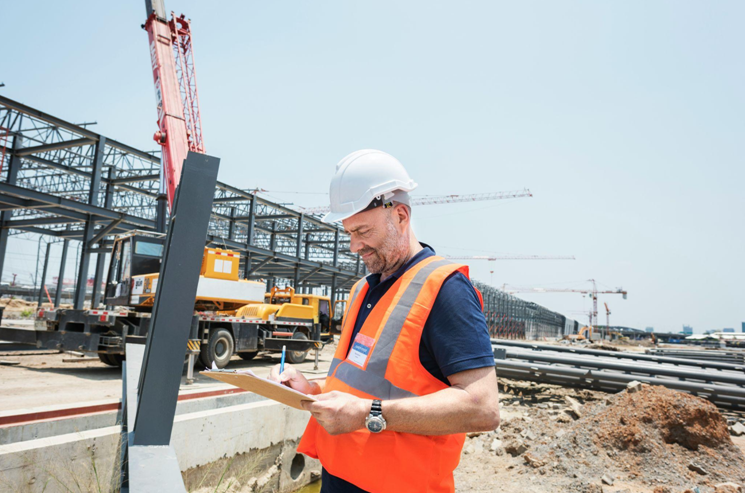Efficient logistics play a crucial role in the success of construction projects, ensuring that materials, equipment, and labor are coordinated seamlessly. With advancements in technology, smart logistics have revolutionised the industry by enhancing supply chain management, reducing delays, and optimising resources. Digital tools, predictive analytics, and automation have allowed construction managers to streamline operations, leading to cost savings and improved productivity.
Additionally, Robert Edward Napior notes how sustainability efforts have become more prominent, with logistics strategies focusing on minimising waste and reducing carbon footprints. As the industry continues to evolve, future innovations such as AI-driven planning and autonomous transport systems will further enhance efficiency, making construction projects more predictable and environmentally responsible.
The Importance of Logistics in Construction
Efficient logistics play a critical role in keeping construction projects on schedule and within budget. Coordinating the movement of materials, equipment, and labor ensures that each phase runs smoothly without costly interruptions. When managed poorly, logistical issues can lead to delays that affect project deadlines and increase expenses.
Many construction sites experience challenges such as supply chain disruptions, material shortages, and inefficient transportation. A delayed shipment of essential materials can halt progress, forcing crews to wait and leading to wasted labor hours. Without a well-organised approach, teams may struggle to align deliveries with project timelines, creating unnecessary bottlenecks.
Large-scale projects require precise planning to avoid logistical setbacks. A high-rise development, for instance, depends on the timely arrival of steel beams, concrete, and specialised machinery. If deliveries arrive too early, storage space becomes a concern; too late, and workers are left idle. Smart logistics addresses these challenges by improving coordination, reducing waste, and enhancing productivity.
Key Technologies in Smart Logistics
Advancements in technology have transformed logistics, making it smarter and more efficient. IoT sensors allow real-time tracking of materials, ensuring that shipments arrive precisely when needed. AI-driven systems analyse data to predict demand, helping construction managers make informed decisions about procurement. These innovations minimise delays and reduce material waste, improving overall project efficiency.
GPS tracking and RFID tags have become essential in modern construction logistics. When high-value materials or specialised equipment are in transit, these technologies provide precise location updates, preventing theft and loss. A large infrastructure project, such as a highway expansion, benefits greatly from these tools, as they help coordinate deliveries across multiple sites without confusion.
Digital platforms also play a key role in streamlining communication between suppliers, contractors, and site managers. Cloud-based systems allow teams to access real-time data, reducing miscommunication and improving workflow. By integrating these technologies, construction projects can operate with greater accuracy, ensuring that resources are used effectively. Project management software further enhances collaboration, enabling stakeholders to monitor progress and adjust plans dynamically.
Reducing Delays and Optimising Supply Chains
Construction delays often stem from poor supply chain management, where materials arrive too late or in excess, disrupting workflow. Predictive analytics helps mitigate these issues by forecasting demand and adjusting procurement schedules accordingly. By analysing past trends and current conditions, smart logistics ensures that resources are available exactly when needed, preventing costly downtime.
An urban development project, where multiple contractors work simultaneously, requires precise coordination to keep everything on track. If concrete deliveries are delayed, structural work stalls, causing a domino effect on subsequent tasks. Real-time tracking systems allow site managers to monitor shipments and make quick adjustments, ensuring that materials reach the site at the right moment.
Automation is another factor in improving supply chain efficiency. Drones and autonomous vehicles are gradually being integrated to handle material transportation, reducing reliance on manual labor and minimizing errors. With these advancements, construction companies can streamline their operations, cut costs, and maintain steady progress without unnecessary interruptions. Robotic systems are also being developed to assist in sorting and transporting materials on-site, further accelerating project timelines.
Enhancing On-Site Coordination and Productivity
Seamless coordination on-site is indispensable for maintaining efficiency and preventing costly delays. Just-in-time delivery methods ensure that materials arrive exactly when needed, preventing clutter and reducing the risk of damage. When construction teams have access to digital planning tools, workflows become more structured, allowing different trades to operate without unnecessary downtime. Proper scheduling tools prevent overlapping tasks, ensuring that each phase of the project progresses smoothly.
On a busy construction site, miscommunication can lead to wasted effort and scheduling conflicts. Digital platforms that connect project managers, suppliers, and workers in real time help prevent these setbacks. A commercial building project benefits from centralised scheduling systems that allow teams to adjust plans dynamically, ensuring that every phase progresses smoothly. Without these systems, teams might face confusion regarding deadlines, leading to errors and rework that could have been avoided.
Cost Savings and Environmental Benefits
Optimised transportation routes and fuel-efficient delivery planning reduce expenses associated with fuel consumption and vehicle maintenance. When supply chains are managed effectively, unnecessary orders and excess inventory are minimised, preventing financial losses tied to overstocking or last-minute procurement. Lower operational costs enable construction firms to allocate resources effectively, improving overall project profitability.
Sustainability has become a major focus in modern construction, and logistics plays a key role in reducing environmental impact. By utilising AI-driven route optimisation, companies lower carbon emissions by decreasing travel distances and eliminating redundant trips. Prefabrication is another strategy that reduces waste by ensuring that components are precisely manufactured and delivered in the correct quantities, minimising leftover materials on-site.

































